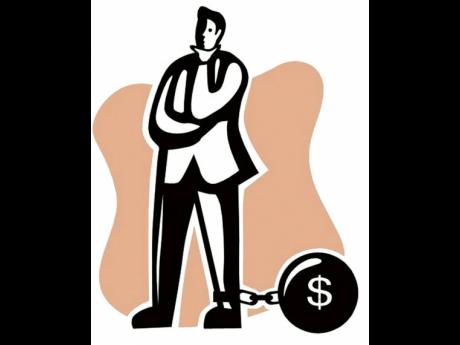Debt stance seen as key to post-COVID investment
The ability of the Jamaican government to finance private-sector and public welfare stimulus packages without resorting to external borrowing, including the non-take-up of special drawing rights allocation from the International Monetary Fund, has been a feather in the country’s cap, some watchers of public-sector financing have noted.
Investor confidence in the country has been boosted by the country’s debt management stance, a panel of experts noted in discussions on economic prospects for regional countries post-COVID.
“In terms of Jamaica, going into the pandemic, we had a positive outlook with a rating of B+, which has been the highest rating for some time,” said Charles Seville, senior director and co-head of sovereign ratings for the Americas at rating agency Fitch.
“Debt service as a share of revenue is coming down, there has been reform to the central bank, there is a floating exchange rate. It will start to feed into investor confidence broadly. We are quite positive on Jamaica, while acknowledging the risks that come with that,” the Fitch analyst said at the Bloomberg forum.
Slow growth
He was not as bullish on the performance of the other relatively large economy in the English-speaking Caribbean, that of Trinidad and Tobago, saying that while richer, it was one of the region’s slowest growing.
Gas output in energy-dependent Trinidad has been down by 30 per cent for over a decade, while real GDP has contracted eight per cent over the past five years, Seville said.
He added that Trinidad has strong fiscal buffers, while on the monetary side it had a very heavily managed exchange rate that is backed by large reserves, “but the reserves are in decline,” Seville noted.
The short to medium-term prospects for the southern Caribbean country, the Fitch representative felt, are heavily skewed to the energy sector. He is suggesting policy changes to encourage investment and growth in areas other than energy.
At the same time, the increasing debt burden of some Caribbean and Latin American countries in the context of the pandemic, has not been a turn-off to investments for everyone. Claudia Castro, director of fixed income research at investment management company Invesco, told the virtual forum that investors are looking at a broader range of public financial management issues and making assessments on a country-by-country basis.
“Investors are generally okay with an increase in debt burden and in fiscal deficits because it was across the board, generated by this crisis. Of course, scrutiny will be on which countries have more or less fiscal space and the credibility of their plans. It’s where you are going, really, because countries have different starting points,” she said.
Therese Turner-Jones, general manager for the country department of the Caribbean group for the Inter-American Development Bank, IDB, says public financial management in the Caribbean and Latin American region should be linked to digital transformation, the upskilling of their populations, and investment promotion for greater levels of growth and development.
“What Caribbean countries need to do, while they are helping to manage their public finances, is to think about what are those obstacles to foreign direct investments of whatever source, into our region, to have greater economic activity,” she said at the forum held on June 30. “The solo industries, like tourism, are no longer enough to sustain our developmental needs,” Turner-Jones asserted.
She is also recommending that the countries of the region invest in insurance safety nets and resilient infrastructure, pointing out that the IDB now has disaster clauses in its loan contracts which take into consideration the Caribbean’s susceptibility to disasters like hurricanes.
Disaster considerations also factor into the recovery outlook for the region, according to Gabriel Lozano, chief economist for Mexico and Central America at JP Morgan, who says a spike in COVID-19 infections or the occurrence of hurricanes could blow an 8.5 per cent growth projection for the region off course.
As to the recovery from the pandemic, it will rest on remittances, exports, and tourism as a key pillar in the second half of the year, but could be complicated by the storm season, Lozano posited.
“It’s always complicated to watch the events that can derail the dynamics of growth,” he said.

